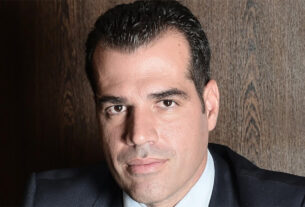Since 1540, a prestigious chain of scholars has held the title of the Regius Professor of Hebrew at the University of Cambridge.
But not one of these scholars of Hebrew and Semitic studies was Jewish — until this year.
In September 2025, Aaron Koller will become the first Jew to join the university’s department of Middle Eastern Studies as the Regius Professor of Hebrew, a role established by King Henry VIII. Koller is packing up from New York City, where he has taught at Yeshiva University, specializing in Hebrew from biblical to medieval texts, since earning his doctorate there in 2009.
According to Koller, it’s no surprise that Jews never made the cut before. Henry VIII, who founded the Church of England along with the professorship, intended it for Anglican churchmen to teach Hebrew in the Anglican tradition. That idea lasted until recently.
“Fifty years ago, it wouldn’t have struck anyone as odd that no Jewish person had held the position,” Koller said in an interview. “It was pretty clearly — not officially, but very clearly — meant for an Anglican professor of the Old Testament.”
Koller — who spent the 2022-23 academic year in Cambridge — credits his predecessor, Geoffrey Khan, with breaking the mold. Khan is not a member of the Anglican Church nor a specialist in the Old Testament, but a scholar of Semitic languages with mixed British, Indian and Iranian ancestry.
In his new role, Koller wants to promote the study of Hebrew texts over the thousands of years between the Hebrew Bible and the modern state of Israel, drawing on Cambridge’s rich trove of manuscripts that includes the Cairo Genizah, the vast collection of medieval manuscripts discovered in Egypt in the late 19th century. Koller hopes that introducing students to these writings will open them up to new angles of studying cultural and intellectual history across the world.
Despite being the first Jewish Regius professor, Koller said he is wary of narrowing the department around “Jewish studies for the Jews.” In the United States, Jewish studies departments tend to attract Jewish students looking to connect with their identity and heritage. That fills a valuable need, said Koller, but he wants to build out Hebrew studies as a home for any student with a humanistic interest in Hebrew — addressing the same historical and philosophical questions that draw people to studying ancient Greek or Latin.
“No one thinks that Greek studies would only be for Greeks,” he said. “Greek studies spend a lot of time trying to explain to the world that this is of universal significance. It’s not for every single person, but it’s for any given person; [they] will find something interesting here. And I very much want to do the same for Hebrew studies in Cambridge.”
As far as faculty representation, there is still progress to be made in the Regius Professorship.
“There still hasn’t been a woman in the position,” said Koller. “That’s yet to be solved.”
Keep Jewish Stories in Focus.
JR has documented Jewish history in real-time for over a century. Keep our journalism strong by joining us in supporting independent, award-winning reporting.




